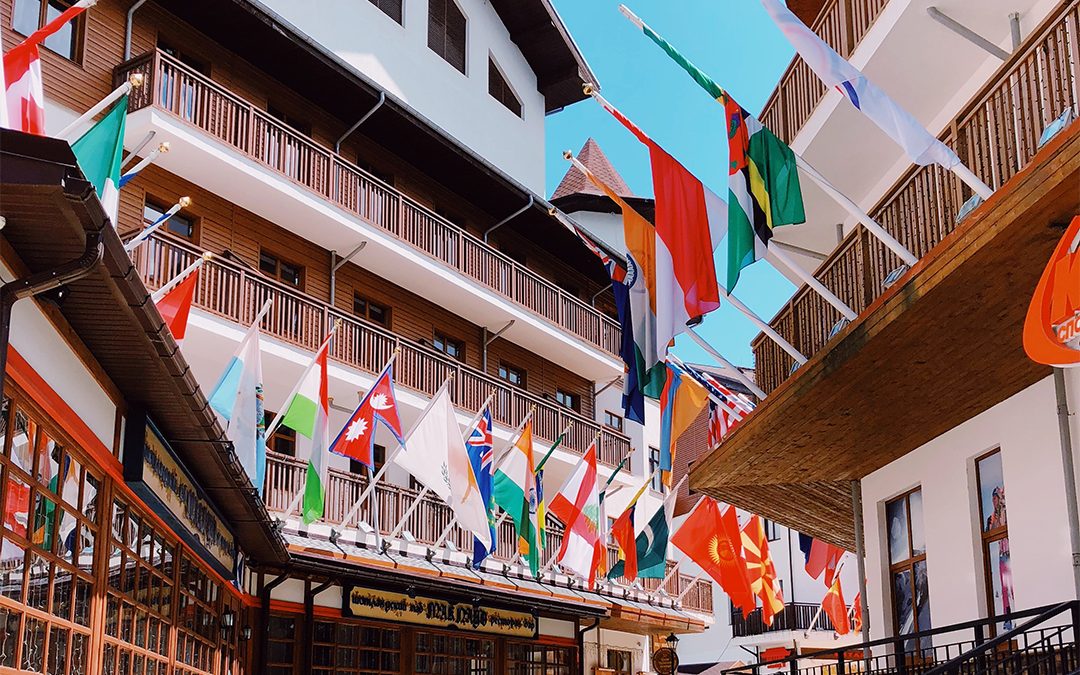
Reading: Things go better with Coca-Cola
29 de maio de 2019
Reading: A hard life
5 de junho de 2019A stereotype is a standardized conception or image of a specific group of people or objects. Stereotypes force a simple pattern upon a complex mass and assign a limited number of characteristics to all members of a group. While we commonly use the term as it is applied to human beings, it is quite possible to stereotype objects as well. In popular culture we can examine both types of stereotypes so that we often find people stereotyped around characteristics of age (“All teenagers love rock and roll and have no respect for their elders.”), sex (“men want just one thing from a woman.”), race (“All Japanese look and think alike.”), religion (“All Catholics love the Pope more than their country.”),vocation (“All lawyers are greedy.”) and nationality (“All Germans are Nazi.”). Objects can be stereotyped around characteristics of places (“All cities are corrupt and sinful.” “Small towns are safe and clean. “In England, it rains all the time.”) and things (“All American cars are cheaply and ineptly made.” “A good house has a large garden, big garage, and at least two bathrooms.”). Because objects are studied as icons, however, we will use stereotypes primarily as a tool to examine popular beliefs and values about people.
Four Characteristics of Stereotypes
- Simple: certainly more simple than reality, but also often capable of being summarized in only two to three sentences.
- Acquired Secondhand: people get (and absorb) stereotypes from cultural mediators rather than from their own direct experience with the groups being stereotyped.
- Erroneous: all stereotypes are false. Some are less false than others, and (more importantly) some are less harmful than others. They are attempts to claim that each individual human being in a certain group shares a set of common qualities. Since an individual is different from all other individuals by definition, stereotypes are a logical impossibility.
- Resistant to change: during the last twenty-five years the difficulties with racial and gender inequalities in American life have alerted most people to the tragic consequences in beliefs about popular stereotypes. Yet, even after more than a quarter of a century old stereotypes still color our perceptions. Despite the fact that stereotyping is a natural method of classification and despite the fact that stereotyping has some useful functions under certain circumstances, all too often stereotypes are the curse in the American mindset.
It is not very pleasant to study them and it is even less pleasant to study their horrible effects. But we must study them. Common stereotypes directly reflect our beliefs, and like other more pleasant beliefs, we must understand them if we are to understand ourselves.
National Stereotypes:
What kind of stereotypes are assigned to each nationality?
| American | British | French | Argentinean |
| Japanese | Italian | Brazilian | Portuguese |
| German | Australian | Spanish | Swiss |
Choose two adjectives to describe the nationalities listed below:
| punctual | outgoing | sophisticated | quiet |
| arrogant | tolerant | nationalistic | hospitable |
| formal | ignorant | respectful | well-dressed |
| talkative | aggressive | polite | casual |
| hard-working | humorous | sociable | emotional |
| lazy | serious | rude | nice |
Fill in the blanks with the nationalities: SWISS, BRITISH, GERMAN, FRENCH, JAPANESE and ITALIAN and explain why:
“Heaven is where the police are__________, the cooks are___________, the mechanics are___________, the lovers are_____________, the workers are __________ and it’s all organized by the____________.
Hell is where the police are_________, the cooks are____________, the mechanics are__________, the lovers are____________, and it’s all organized by the________________.’”
Generalisations are general statements or opinions which are only partly true because they are based on a few cases or incomplete knowledge.
Below there is a list of “generalisations.” Say whether you agree or disagree with the generalizations below:
- Top sports stars have fewer worries than most other workers.
- City people are more cultured than those from the country.
- People who talk a lot don’t say much.
- Artists are different from most people.
- Poor people are happy in their own way.
- You love what you don’t have.
- American food is terrible.
- Women gossip more than men.
- Married people are boring.
- Footballers are not intelligent.
- You can’t be friends with your boss.
- Old people have no fun.
- Men only think about sex.
- Young girls are brighter than young boys.
- Engineers and accountants are very rational people.
- Math is for intelligent people.
- All politicians are corrupt.
- Rich people have a great life.





